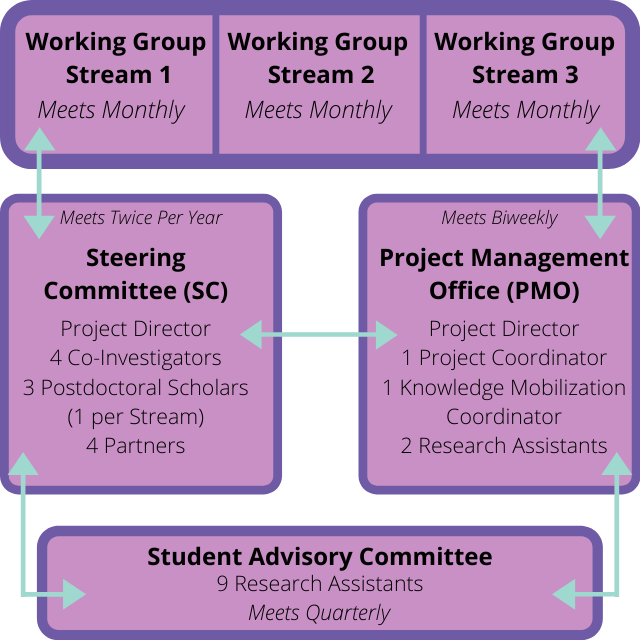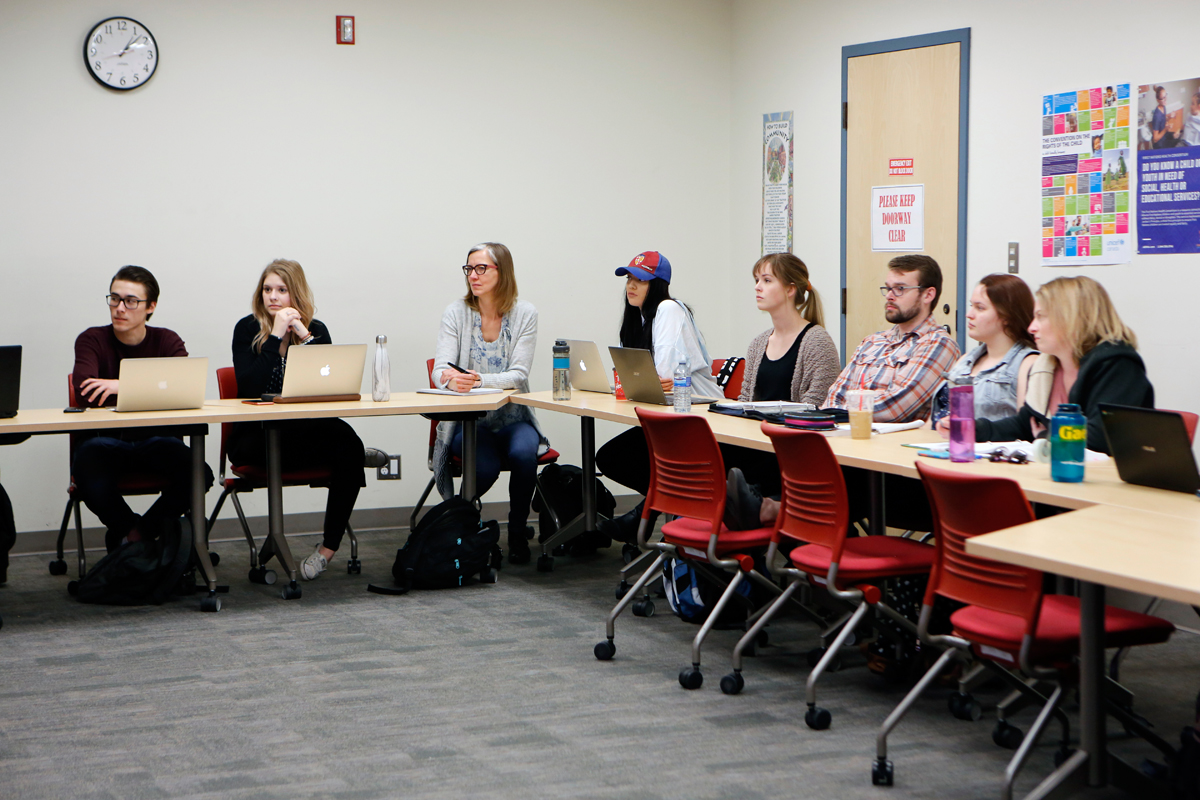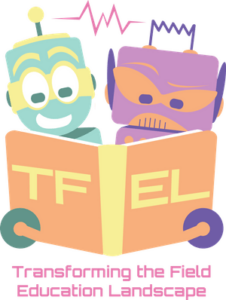Governance

The governance structure of TFEL is designed to promote collaborative decision making and action by all stakeholders. The Project Director (PD), as the overall leader and manager, will steer the partnership towards achieving project goals and objectives, notably the three streams of partnered research training activities.
Steering Committee (SC)
The SC’s major responsibilities are to: (1) establish strategic directions; (2) provide guidance for training, mentoring, research and knowledge exchange; (3) foster collaboration among members; (4) approve knowledge exchange strategies; and (5) resolve risk and conduct issue management. Structured formal meetings are held twice a year (and others scheduled as emergent issues arise) and agendas are developed in consultation with committee members. The SC model of decision-making is consensus.
Project Management Office (PMO)
The PMO is responsible for organizing meetings and workshops, maintaining records, and facilitating communication and connections both internal and external to the Project. The Project Coordinator supports project management functions that include financial administration, student hiring, data repository, and copyright issues. The Knowledge Mobilization Coordinator engages members through social media, newsletters, and information bulletins and supports knowledge mobilization efforts through presentations, audio and video products, written materials such as magazine articles and reports, and other partnered outreach events.
Student Advisory Committee (SAC)
Opportunities for students and postdoctoral scholars to have a voice in setting directions and priorities are created in a Student Advisory Committee, which has been established as a consultative structure. The Student Advisory Committee has 9 members who are student research assistants or postdoctoral scholars in the partnership. Meetings are held quarterly via distance technology (or as needed), and agendas are developed in consultation with Committee members.
Working Groups
The partnership operates three Working Groups for each of the three streams in the Project. The purpose of the Working Groups is to bring together members of the team who are engaged in the partnered research training activities in each of the three streams. Each Working Group is supported by a postdoctoral scholar and student research assistants. Meetings are held monthly via distance technology, and agendas are developed in consultation with Working Group members.
See Terms of reference for: (Include links to documents)
Stream 1: Digital Storytelling Working Group
Stream 2: National Study Working Group
Stream 3: Applied Practice Research Working Group
Additional advisory committees and working groups will be established to meet emergent needs and to respond to changes in the scope of the Project. The governance structure is reviewed and evaluated on an annual basis.




